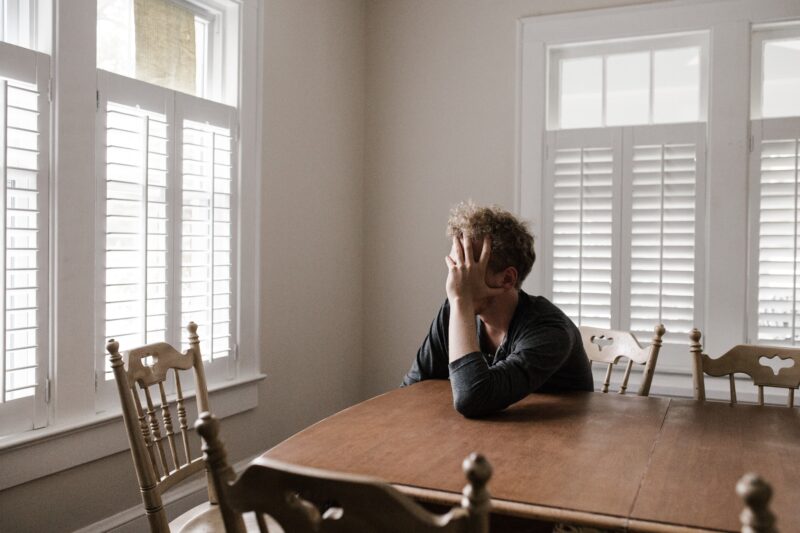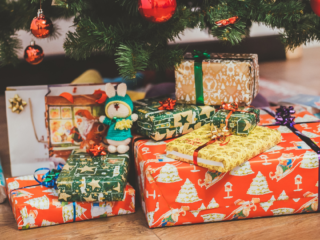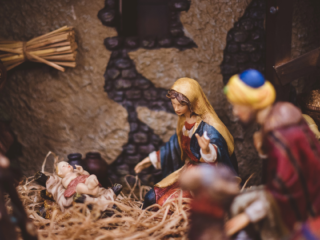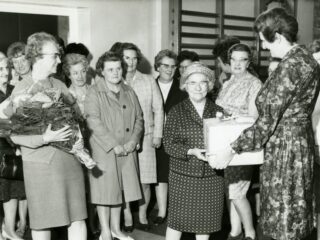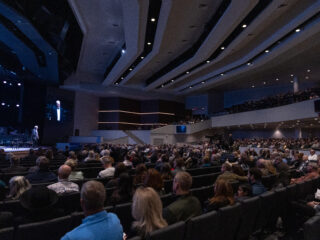Early in our human evolution, we discovered we don’t do very well on our own. We seemed to have learned from other animal species that running around in packs or tribes is a much better way to stay alive. There is safety in numbers. If we’re attacked by a big saber-toothed tiger, we can fight off the beast together. We could work our fields better together and survive natural disasters together. We don’t call them packs or tribes anymore. We call them “gangs” or “congregations”, but the idea is the same. On our own, we don’t do very well, but together we’re hard to beat.
I guess that’s why the fear of abandonment is one of our primal fears. Even as babies, if our parents put us down and go into another room, we cry like we’ve been left in the desert. We’re not old enough as children to understand our parents are on the other side of the door. They haven’t gone anywhere. We just can’t see them. We’re afraid we’re alone in the world.
This fear of being abandoned, of being alone in the world, is one we never outgrow. Most of us have had the unnerving experience of being lost in the city, or of missing a connection and finding ourselves alone in an unfamiliar world. The experience can be traumatizing. One moment, we’re perfectly happy and content, and the next moment, we’re afraid and panicked, sure that no one in the world loves us.
We’re alone.
One of the unexpected challenges of the pandemic was the stress people faced when they were forced to stay at home. If a person was alone, the stress was magnified. Depression, alcohol and drug use, even suicide, all tracked significantly higher. Many health experts doubt if the stay-at-home orders were worth it. While the pandemic continues, the damage it has done to our souls has been far worse.
It seems a lot of people don’t do well working and shopping from home. We need other people. We just don’t do very well alone. We need our pack. We need our tribes.
Sometimes, we’ll go to extremes in our relationships just so we don’t have to be alone. Women will stay in abusive relationships because anything is better than being alone. Men will run in gangs of violence and hatred rather than be alone. Everybody, it seems, needs family, even if the family isn’t a very good or healthy one.
I guess this is one of the reasons one of the most often given promises in the Bible is, “I will be with you”. We don’t mind facing Pharaoh in Egypt or the long months in the wilderness. We don’t mind Roman prisons or being shipwrecked on evangelistic voyages. We just don’t want to have to face life, any part of it, by ourselves.
The times of Jesus’ birth were as anxiety-producing as our own. The people of Judea were tired of Roman rule. They were tired of being slaves to the Empire and paying Roman taxes. They wanted things back to the way they used to be. They wanted Jerusalem to be the Holy City of God again. They wanted David — or someone like him — back on the throne.
They had been promised a Messiah. Someone who would come and make things right. A warrior who would push back the Roman Empire and establish a kingdom of truth and justice. You know, a little bit George Washington, a little bit John Wayne and a little bit Tom Cruise, who would come riding into Jerusalem on a charging white stallion with his kingdom’s flag unfurling behind him.
But God surprised us all at Christmas. He surprised us all in at least two ways. First, He didn’t make a big splash when He entered our world. He snuck in the back door. No one was looking for the Messiah to be born in Bethlehem. Sure, Herod’s scholars knew of the prophecy, but you get the feeling in reading that story the scholars had answered a trivia question. Certainly, no one expected Jesus to grow up in Nazareth. Nathanial reminded Philip of that when Philip wanted Nathanial to meet Jesus. “Nothing good can come out of Nazareth,” was Nathanial’s reply. From the very beginning, God was sneaking around the fringes of society and culture.
The biggest surprise of all was that no one, and I mean no one, expected God to come Himself. We expected a chosen one, a special envoy, an angelic ambassador — we never in a million years thought God would come Himself.
What would be so important to make God come Himself? After all, if God decided He had to deal with this Himself, something important, even vital, had to be at stake.
There was. Us.
Face it. One of the hardest parts to believe in the Gospel message is that God would come for sinners like us, that He would die for sinners like us. We can’t believe God would love people like us.
That’s almost impossible to believe.
I guess that’s why He wanted to tell us Himself. That’s why He came. So, we could hear it from Him. We are loved. We are forgiven. There’s hope for reconciliation and restoration. There’s hope for healing and a life stronger than death.
So, don’t be afraid. Jesus is here.
We are not alone. Jesus is here.
Even a global pandemic can’t mess up this one.
Merry Christmas. Jesus is here.

